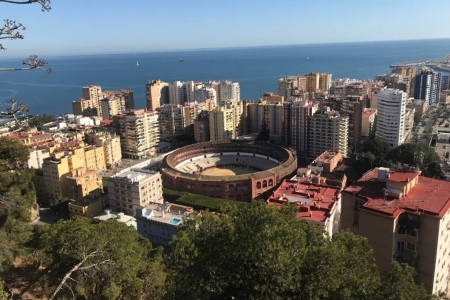17 Abril de 2019
Environment is everything
In this semester I will be residing for a period in Spain and Italy, accompanying and getting to know with a little more depth how the interaction of the University with its environment occurs in some cities and regions (Málaga, Barcelona and Trento). I am in my sabbatical period as a professor of Univates, which allows this excellent opportunity of update, coexistence and experience in different cultural and economic spaces. This is also an opportunity to recharge one’s energies.
For a period of two months I have been in Malaga, a city of almost 600 thousand inhabitants (the size of Caxias do Sul) in the region of Andalusia, Costa del Sol, in the South of Spain, very close to the Strait of Gibraltar. Malaga, the birthplace of the painter Picasso in 1881, has a great tourist appeal for its historic setting with Phoenician ruins, Roman and Moorish castles, numerous museums, beaches and the port that receives all year long ships that cruise the Mediterranean.
It is also in Malaga that is located the largest Technological Park of Spain, the Technological Park of Andalusia - PTA. In Spain there are 51 technology parks with more than 8 thousand companies, generating almost 200 thousand jobs in areas of very high technological level.
The PTA is in an area of 400 hectares fully urbanized (equivalent to six times the campus of Univates). It was founded in 1992 and has more than 600 companies, generating around 20 thousand jobs. It is located 13 km from the city center, 12 from the international airport and 7 from the University of Malaga, all these interconnected by a modern and comfortable public transport system that also includes the subway.
The public University of Málaga (UMA), maintained by the government of the Andalusian region, with 40,000 students, numerous master's and doctoral programs and more than 300 research groups, has an institutional policy focused on entrepreneurship, which enables and prioritizes alliances and strategic partnerships with more than 150 companies, of which the University participates effectively in the development of new products or in the improvement of productive processes.
With this location, infrastructure and history of nearly 30 years in its Technology Park, the Malaga region has created an environment highly conducive to entrepreneurship and innovation, which is attracting world-class companies in the fields of information technology, communications, engineering, biotechnology, nanomedicine, consulting and others. There are more than 60 international companies installed, such as Oracle, Hauwei, Accentur, Ericsson, IMB, TDK and others that develop products and research worldwide.
The units of these international companies, when located in a technological park, act as links of the world supply chains and knowledge production, necessary for the innovation and the offer of new products. Stages of the work, even the intellectual, are distributed in different geographical spaces in the world where there are qualified human resources and a favorable environment, including good coffee and good wine, a good place to live and work.
These units sublocate part of the work and contract different local services, thus generating possibilities for the emergence and consolidation of new companies and new businesses, new startups, always connected and responding to the competitive international market.
The experience in Malaga, which is repeated in several Spanish cities, proves once again that these issues linked to the development of a region do not arise autonomously or are the result of chance. They are decisions made consciously by the agents involved and aligned consistently and coherently. The public sector, the university, entrepreneurs and society must, at a given moment, decide their priorities, align their interests and focus on building an environment conducive to the type of development one wants.
We have to learn that we are talking about processes and that, by their nature, processes are slowly constructed and involve countless actors who must know how to listen, propose, negotiate and compose. These movements also require institutions and people with leadership, knowledge and determination.
On sabbatical leave, the Dean Ney José Lazzari tells of his immersion in Europe.
